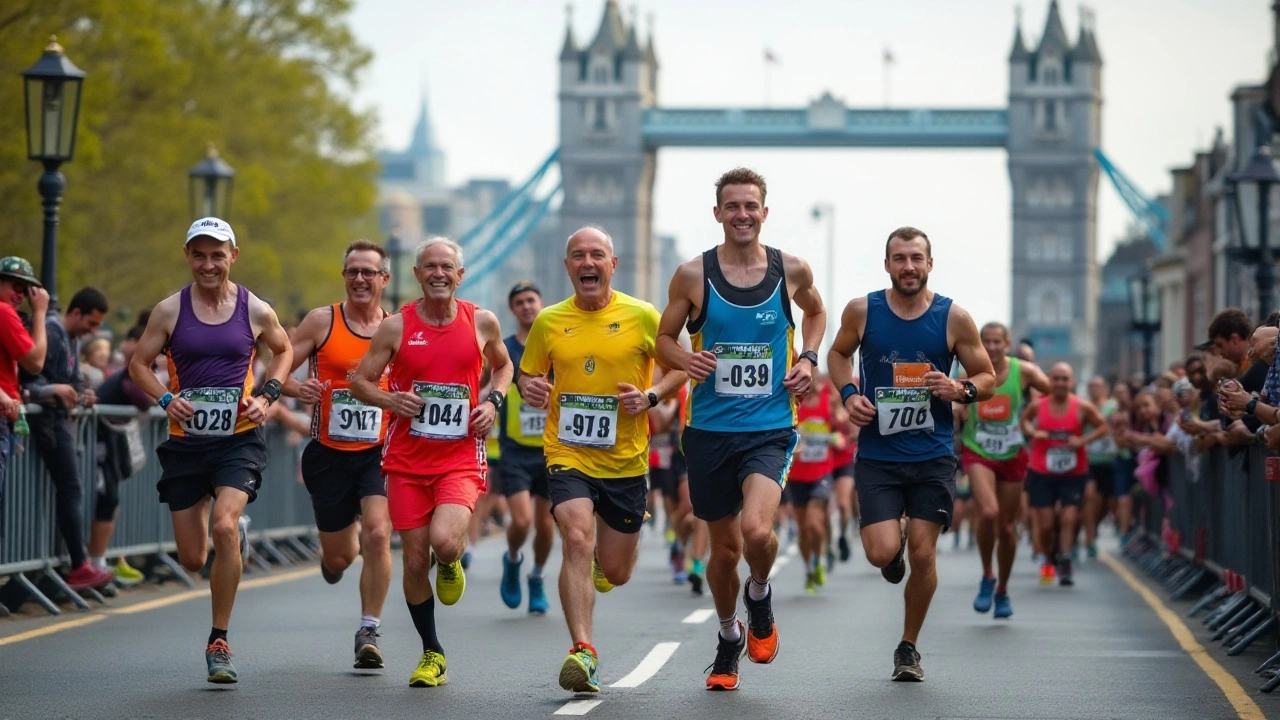Realistic Marathon Time: How Fast Should You Really Run?
If you’ve ever Googled "how long does a marathon take" you probably saw everything from world‑record paces to walkers finishing in 8 hours. Both ends are useful, but most runners sit somewhere in the middle. Knowing a realistic finish time helps you train smarter, avoid disappointment, and actually enjoy race day.
What Does a Typical Marathon Time Look Like?
In the UK, the average marathon finish is around 4 hours 30 minutes for men and 5 hours 10 minutes for women. That’s based on data from the last few big city races. If you’ve run a half‑marathon in under 2 hours, a 4‑hour finish is within reach. If your recent 10K is around 55 minutes, you’ll probably finish closer to 5 hours. These numbers give you a practical benchmark without guessing.
How to Set a Realistic Goal
Start with a recent race time. Use a simple calculator: double your half‑marathon result and add 10‑15 minutes. That’s your projected marathon time. Adjust for your training volume – if you’re logging 30‑40 km a week, aim at the lower end; if you’re at 20 km, add a bit more. Make sure the goal feels challenging but doable – you want to finish proud, not exhausted.
Age and experience matter too. A 25‑year‑old with three years of consistent running can aim faster than a newcomer in their 50s. Don’t compare yourself to elite athletes. Focus on personal progress and the time you can realistically hold for the entire 42.195 km.
Training intensity is the next piece. Quality beats quantity. Include one long run, one tempo session, and a day of speed work each week. Long runs should build up to 30‑35 km at a comfortable pace. Tempo runs teach you the steady “marathon pace” you’ll hold on race day.
Nutrition and recovery are often overlooked. Eating enough carbs, staying hydrated, and sleeping 7‑8 hours a night will shave minutes off your projected time. Small habits add up, especially when you’re trying to stay under a specific cutoff.
When race day arrives, stick to the plan you practiced. Start slower than you think – many first‑time marathoners burn out by going out too fast. Aim to hit your target pace by the 10‑km mark and keep it steady. Use aid stations for quick sips, not big meals.
Common myths can trip you up. One myth is that you need to run every day; rest days actually improve speed. Another is that “slow‑start, fast‑finish” works for most – it’s risky unless you’ve trained that way. Trust the pace you trained at, and adjust only for weather or terrain.
Finally, celebrate each milestone. Whether you finish in 3 hours 45 minutes or 5 hours 30 minutes, you’ve completed a massive challenge. Use the experience to set your next realistic goal, maybe shaving a few minutes off. With the right data, training plan, and mindset, a realistic marathon time becomes more than a number – it’s a reachable achievement.
What is a Realistic Marathon Finishing Time for Different Runners?

Determining a realistic marathon time is crucial for marathoners of all levels. This article explores what influences marathon finishing times, how age and experience affect performance, and sets achievable goals based on personal ambitions. Learn about effective training strategies and real-life marathon times to set practical expectations for your next race.
